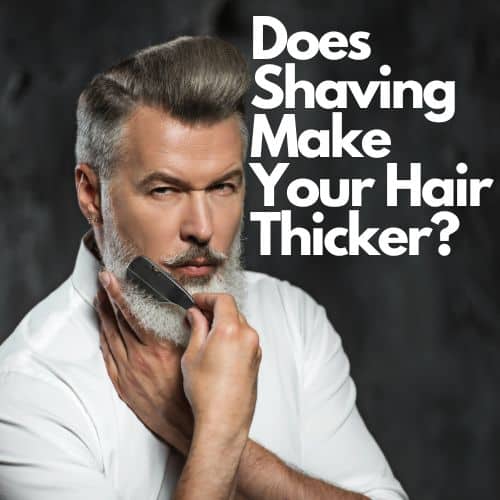We all have heard the saying that shaving your hair makes it grow back thicker. But is there any truth to this age-old myth? Is there a benefit to shaving your hair that can make it appear thicker and healthier? There are a lot of misconceptions about hair and how it grows. One of the most common misconceptions is that shaving your hair makes it grow back thicker and fuller.
In this post, we will explore the answer to the question, does shaving make your hair thicker?
What causes hair to become thicker?
The thickness and fullness of your hair are determined by a variety of factors, including genetics, hormones, and age. Genetics plays a major role in the thickness and fullness of your hair. Your hair follicles are predetermined to grow thicker or thinner hair, and this cannot be changed.
Hormones also play a role in hair growth. Your hormones can affect the rate at which your hair grows, as well as the thickness of the hair. For example, an imbalance in hormones can cause hair loss or thinning of the hair. Age can also affect the thickness of your hair, as your hair can become thinner as you get older.
Does shaving make your hair thicker?
Now that we know what causes hair to become thicker, let’s look at whether or not shaving can make your hair appear thicker. The answer is no, shaving does not make your hair thicker.
Shaving does not affect the thickness of your hair, as it does not affect the root of the hair follicles. Shaving simply cuts the hair off at the surface, leaving the root and follicle intact. This means that shaving does not make your hair grow back thicker or fuller.
Does hair grow back thicker after shaving?
Even though shaving does not make your hair thicker, many people believe that their hair grows back thicker after shaving. This is not true, as shaving does not affect the thickness of the hair or the root of the hair follicle.
The only reason why your hair may appear thicker after shaving is because the hair is cut at a blunt angle, which makes the hair appear thicker. The blunt cut of the hair can give the illusion of thicker hair, but it does not make your hair thicker.
How does shaving affect hair growth?
Shaving does not affect the thickness of your hair, but it can affect the rate at which your hair grows. The reason for this is that shaving can irritate the skin, which can slow down the rate of hair growth.
Shaving can also cause ingrown hairs, which can cause inflammation and irritation. This can lead to slower hair growth, as inflammation and irritation can slow down the growth process.
Tips for thicker facial hair
If you are looking to make your facial hair appear thicker, there are a few tips you can follow.
First, it is important to keep your skin healthy. Make sure to use a moisturizer or oil to keep your skin hydrated and protected. This will help to prevent irritation and ingrown hairs, which can slow down hair growth.
Second, you can use beard oil or serum to help thicken your facial hair. These products can help to make your facial hair appear thicker and fuller.
Another great way to grow thicker facial hair is using a facial scrub or exfoliator to help stimulate blood flow to your facial hair follicles. This can help to promote faster hair growth.
Conclusion
In conclusion, shaving does not make your hair thicker, but it can make your hair appear thicker due to the blunt cut of the hair. Shaving can also affect the rate at which your hair grows, as it can cause irritation and ingrown hairs.
If you are looking to make your facial hair appear thicker, you can use beard oil or serum, keep your skin hydrated, and use a facial scrub or exfoliator to help stimulate blood flow.
So, does shaving make your hair thicker? The answer is no, but it can make your hair appear thicker. With this information, we can finally put the myth to rest and understand that the only true way to have thicker and fuller hair is proper skin and hair care.



